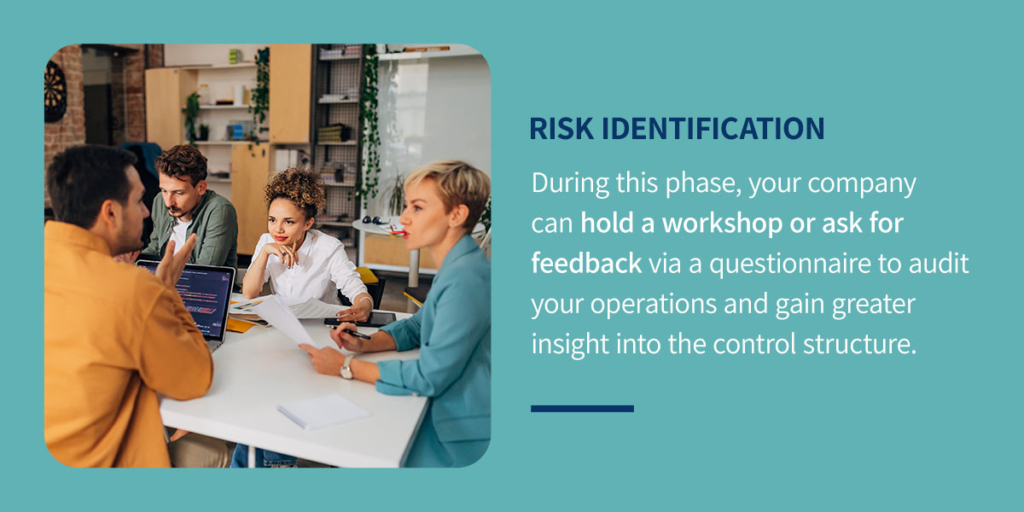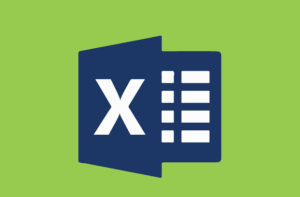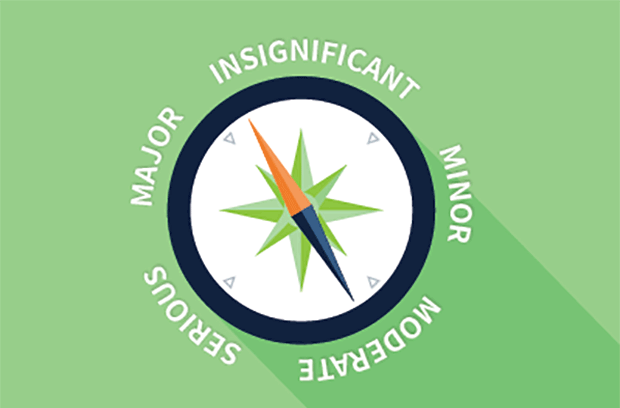A Guide to RCSA
Last Updated: January 16, 2024
Businesses can enjoy many advantages when they perform a risk control self assessment (RCSA) to identify weaknesses in their operation. To help you understand what an RCSA consists of and its benefits, we are breaking down the ins and outs of these assessments in this guide.
From combating security issues to refining inefficient processes, an RCSA can help take your business to the next level while mitigating the risks that are interfering with your growth and success.
Table of Contents
What Does RCSA Mean?
A risk control self assessment is an effective and valuable procedure used to identify, assess and mitigate a business’s operational risks.
The general phases of an RCSA include:
- Identify objectives and risks: The assessment will help your business determine the scope of your operational risks. There may be specific areas or processes within your company that require special attention.
- Establish controls: With an understanding of your organization’s risks, you can establish controls and measures to mitigate those risks effectively.
- Assess controls: Once your controls are in place, your business will assess their effectiveness. If there are weaknesses or gaps in your controls, they will likely need updating.
Benefits of RCSA
With an understanding of the RCSA definition, we can dive into the benefits and importance of using these assessments for your business:
- Improve awareness: An RCSA helps companies learn more about their organization and the risks that could potentially threaten operations. Greater awareness means your team can identify risks and take action to combat them more efficiently.
- Boost decision-making: These assessments also provide insights that are advantageous for informing important decision-making. You can use the RCSA to determine the best action plan for mitigating potential risks.
- Enhance compliance: Another benefit of using RCSAs is ensuring your operations meet important regulatory requirements. Assessments can help meet specific industry standards and keep your operation compliant.
- Inspire continuous improvement: The ultimate goal of RCSA is to help businesses continuously refine and enhance their processes to mitigate risks and support growth. Regularly addressing risks is an effective way to ensure your controls benefit your operation.
RCSA Best Practices
There are a few best practices for an RCSA to help your business gather important feedback and identify operational risks. Depending on your unique organization, you can utilize different approaches for the RCSA, including the following:
Questionnaires
One effective technique for a risk control self assessment is having your team and stakeholders fill out detailed questionnaires about your operational risks and controls. Your business can gain valuable insights into the effectiveness of your existing controls and develop a plan to refine and enhance them.
Questionnaires require your business to develop the survey, gather feedback and compile the results.
Workshops
Another common approach for RCSA is holding workshops with all of your organization’s primary stakeholders. These meetings allow your team to discuss your business’s risks and controls in greater detail from multiple perspectives. Workshops are an effective way to get each department on the same page and clearly outline the responsibilities of each sector relating to risk management and individual responsibilities.
Hybrid Approach
Your business can also use a hybrid approach to its RCSA, using questionnaires and workshops to identify risks and assess the effectiveness of your operation’s controls. This method is beneficial because it allows companies to lessen the burden on participants and get a more well-rounded glimpse into the existing processes.
These approaches can help your company harness greater data-driven insights into day-to-day operations. They can inspire your team to stay mindful of potential risks and take action promptly.
Steps for RCSA Compliance
A risk control self assessment involves a few different phases, ranging from recognizing risks to monitoring the effectiveness of your controls. Explore the RCSA framework below:
- Documentation: Begin with a top-down analysis of your business’s operations and the associated risks. Your company will create a report that identifies the existing control structure.
- Risk identification: Take a closer look at your business processes by performing a risk assessment. During this phase, your company can hold a workshop or ask for feedback via a questionnaire to audit your operations and gain greater insight into the control structure.

- Risk assessment: Next, the RCSA will help your business categorize existing and potential risks, helping your team prioritize each threat or inefficiency according to severity and impact. In some cases, the RCSA assists in allocating monetary value to each risk according to how quickly it could transpire into a serious problem for your company.
- Controls assessment: Your business and its stakeholders will evaluate your existing risk controls to determine their effectiveness. You’ll explore and identify any gaps that require additional attention and refining. Once you know where your controls fall short, you can start planning how you’ll mitigate the associated risks adequately.
- Plan development: An important part of an RCSA framework is creating new plans to correct control weaknesses. The new controls should be achievable and easy to follow so your team can make changes efficiently.
- Reviews and ratings: With your business’s mitigation plans and controls in place, you can begin categorizing them to determine their effectiveness. Keeping track of ratings can help your team identify new areas that could use updating for continuous improvement.
Manage Risks With LogicManager
Risk management is a critical ongoing process for any business. By partnering with LogicManager, you can supercharge your operations with the help of a reliable solutions provider that is well-versed in risk mitigation.
We offer various risk management solutions designed to help businesses like yours find answers to their problems. These solutions include:
- Enterprise risk assessments
- Security and privacy risk management
- Enterprise third-party risk management
- Spend risk management
- Human resources risk management
Our enterprise risk management software equips your business with the tools and resources it requires to anticipate future needs and enhance business performance. We also provide outcome-based consulting and support services to advise your team on risk management best practices. Through improved controls and a systematic approach, LogicManager will help improve and elevate your operations.
Prepare for Tomorrow’s Surprises With LogicManager
If you want helpful risk management solutions that help your organization reach its greatest potential, turn to LogicManager. Our platform is here to help you find useful solutions to your unique problems. Our team has been empowering businesses with dynamic and comprehensive risk management software since 2006.
Our solutions make it easy to manage and track your risk management in one centralized hub. We can also provide actionable advice for your company, helping your operation take control of its processes and reach new heights.
Are you ready to empower your organization? Contact LogicManager or request a free demo of our risk management software today!





